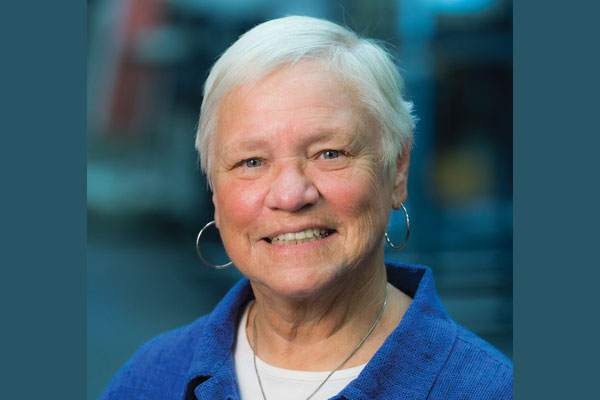Losing My Grip – Both Literally and Figuratively
How I’m Coping with a Mysterious Late Effect of Radiation Treatment
by Susan R. Harris
It began about 18 months ago when I suddenly lacked the thumb strength to depress the button to open my car doors with my right (dominant) hand. And why were my brand-new nail clippers prematurely dull? Then I decided I needed to call a locksmith because the key to my condo unit wasn’t turning properly in the lock.
Over the next few weeks, I experienced sudden spasms in which my thumb jerked toward my palm and my fingers splayed out. Then the numbness and twitching began in my fingers and hand. My little finger became so numb that once, as I was eating a prune, I bit into my fingertip – unaware that it was not part of the prune. As an evidence-based health researcher, I thought to myself, “Surely this must be psychosomatic.”
I searched PubMed, an online biomedical research database maintained by the National Center for Biotechnology Information at the U.S. National Library of Medicine to try to prove to myself that I wasn’t losing my grip – when, in fact, I literally was! To my horror, my symptoms mirrored those of amyotrophic lateral sclerosis, or ALS, a disease about which I knew a great deal but was not prepared to face – having already dealt with breast cancer twice in my life. One of the other discomforting possibilities was cancer recurrence in my right armpit – another scary scenario later ruled out when my oncologist ordered an MRI.
By now, my right arm was getting progressively weaker, so I sought the advice of a physical therapist. Grip-strength testing of both hands revealed that my right hand-strength was only 67 percent of my left, when published research told me it should be 110 percent. My pinch strength on the right was even worse – less than 50 percent of my left.
My more recent cancer episode had been more than 20 years ago. How could a neurological disorder possibly be related to that? No wonder my general practitioner didn’t have a clue as to what was causing these bizarre symptoms and the first thing that my oncologist feared was a cancer recurrence.
My own sleuthing on PubMed led me to a probable diagnosis, even before confirmation by a neurologist. I likely had damage to the brachial plexus – the large bundle of nerve roots in the armpit that provide sensory and motor nerve stimulation to the entire arm and hand. And that damage was most likely caused by radiation treatments that I had received over 20 years ago!
Although radiation-induced brachial plexopathy (RIBP) affects up to 5 percent of people who receive radiation for several different types of cancer, it remains a little known late effect of this very common treatment, occurring as long as 20 to 30 years after a person finishes radiotherapy. Given that there are more than 3.5 million breast cancer survivors in the U.S., up to 175,000 women (and men) could be experiencing this baffling malady without realizing its origins or being aware of what it actually is. Because RIBP can also result from radiation treatments for lung cancer, lymphoma, and head and neck cancers, it’s possible that up to 200,000 Americans are currently living with this progressively disabling condition.
My more recent cancer episode had been more than 20 years ago. How could a neurological disorder possibly be related to that?
As my strength continues to wane and the troublesome numbness creeps further up my arm, I am relieved, at least, not to have recurrent cancer or ALS, nor to have had my arm amputated – a treatment for RIBP many years ago when radiation doses were much higher and their aim less focused!
When I was diagnosed with my second, more serious breast cancer episode more than two decades ago, my odds of living to age 65 were about 30 percent. Happily, I have celebrated my 71st birthday. Ironically, it’s very plausible that the radiation treatments that led to my arm weakness and numbness – and to “losing my grip” – may also have prolonged my life.
But, as a formerly avid right-handed tennis player who also once had precise and lovely handwriting, I continue to struggle with those physical losses, in spite of my enhanced lifespan. Getting a new lease (or grip) on life continues to be a challenge – but I’m trying!
Susan Harris is a two-time breast cancer survivor living in Vancouver, Canada.
This article was published in Coping® with Cancer magazine, March/April 2020.
Everyone has a unique story to share. Do you want to share your survivor story? We consider a cancer survivor to be anyone living with a history of cancer – from diagnosis through the remainder of life. Here are our submission guidelines.


